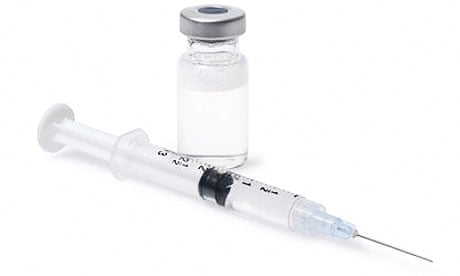Much has been said of the British Olympic Association's bylaw which provides that a person convicted of a doping offence will be ineligible for selection to future British Olympic teams.
There is much to be said about the philosophical basis for such a bylaw and its desirability. There are many who share the same approach to the anomaly of known cheaters participating in the Olympic Games.
But, instead of trumpeting its moral rectitude on the question, the BOA should examine the situation from the perspective of the current legal inability to enforce its bylaw. It is not a matter of whimsy or arbitrariness which has led the World Anti-Doping Agency (Wada) to declare that the BOA fails to comply with the World Anti-Doping Code. Here are the facts:
1. The fight against doping in sport, led by Wada, is a worldwide, not merely British, fight.
2. The BOA adopted its bylaw regarding non-eligibility of convicted dopers in 1992, prior to the creation of Wada and the adoption of the code.
3. Britain supported the creation of Wada in 1999 and has been actively represented in its governance since.
4. All parties and stakeholders, including Britain and the BOA, have agreed that there must be a harmonisation of the anti-doping rules.
5. Harmonisation of the rules took the form of the code, adopted by Wada and accepted by all stakeholders, including the BOA, in 2004.
6. The code, as unanimously approved, provides a maximum sanction of two years suspension for a first doping offence. This maximum was established partly on the advice of human rights lawyers to the effect that state courts would not interfere with such sanctions as excessive in the circumstances.
7. The BOA's acceptance of the code occurred after its 1992 adoption of the bylaw and therefore represents its latest pronouncement on the subject of sanctions, which is inconsistent with the 1992 bylaw.
8. The BOA bylaw can only come into application if there has already been a sanction applied for a doping offence.
9. The exclusion from future Olympic teams is, therefore, an additional penalty for the doped athlete, over and above the code sanction. This conflicts with the provisions of the code, to which the BOA is a signatory.
10. The BOA is, accordingly, offside and has been identified as such by Wada. This is not a matter of philosophical differences, simply a matter of the legal effects of its actions.
What the BOA should have done was pay attention to its bylaw, and its underlying philosophy, at the time the code was being negotiated in 2003, and to argue for the right to impose an additional sanction in the special context of the Olympics.
Even if the BOA overlooked the obvious discrepancy between its bylaw and the code, there was an additional opportunity in 2007, when the code was amended to take into account the experience from the first four years of its application. The BOA said nothing.
It might have been quite simple to obtain a consensus among all stakeholders regarding the special nature of the Olympic Games and to have amended the code accordingly. But the BOA did nothing.
The same might have been said for the International Olympic Committee's "Osaka Rule", recently declared invalid by the court of arbitration for sport. The IOC, unlike the BOA, has accepted the decision and will pursue the matter during the next code review.
Instead of engaging in a thoughtful assessment of how to solve the situation, the BOA has resorted to demagoguery and, while blaming everyone else for the effects of its own legal errors, has attempted to wrap itself in a cloak of righteousness, a self‑declared David, bravely alone in the face of Goliath.
Our David is not, however, without feet of clay. The BOA bylaw has been in existence for 19 years. It has been applied 32 times and successfully challenged 29 times. Clearly there are "good" dopers and "bad" dopers, and at least two of the "bad" dopers have served their time and are representing Britain again – all without BOA or British outrage.
There seems to be a double standard in play. Extrapolated to the BOA, the Bard's language might well read: "The laddy doth protest too much, methinks."
We live in a society governed by law, not arbitrary action. Sport, as an activity within society, has its own rules, to be respected by all participants. The BOA has put itself in a position of being a rogue. If it remains convinced that its rule is nevertheless legally valid, it should appeal to CAS against Wada's determination of non-compliance.
The BOA's current conduct is unworthy, especially on the part of the host national Olympic committee when the world comes to London next year. Respect for rules which it participated in adopting should be a matter of pride and conviction, not of being dragged kicking and screaming into forced compliance.
Dick Pound is the former president of the World Anti-Doping Agency
